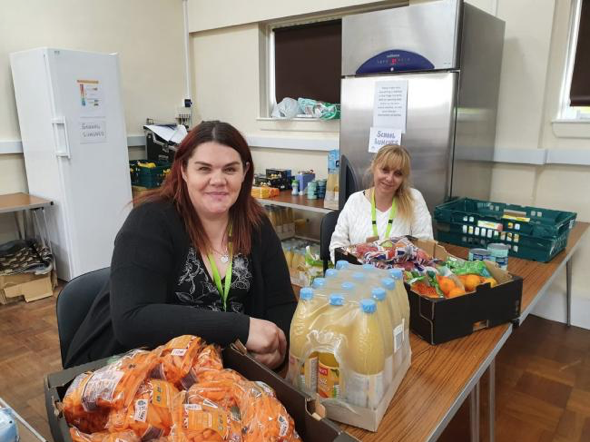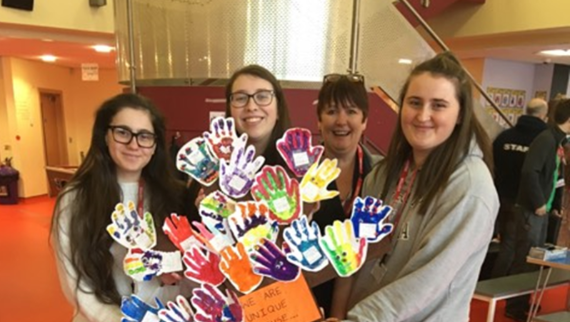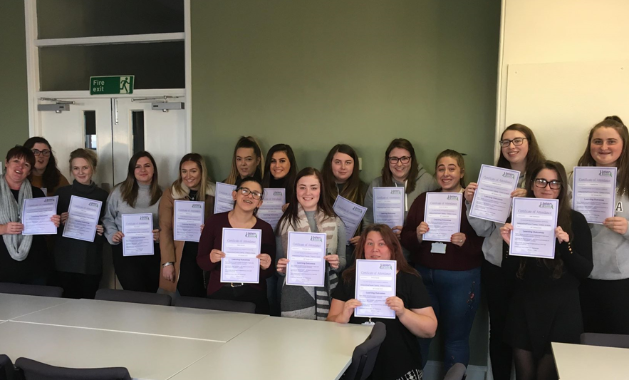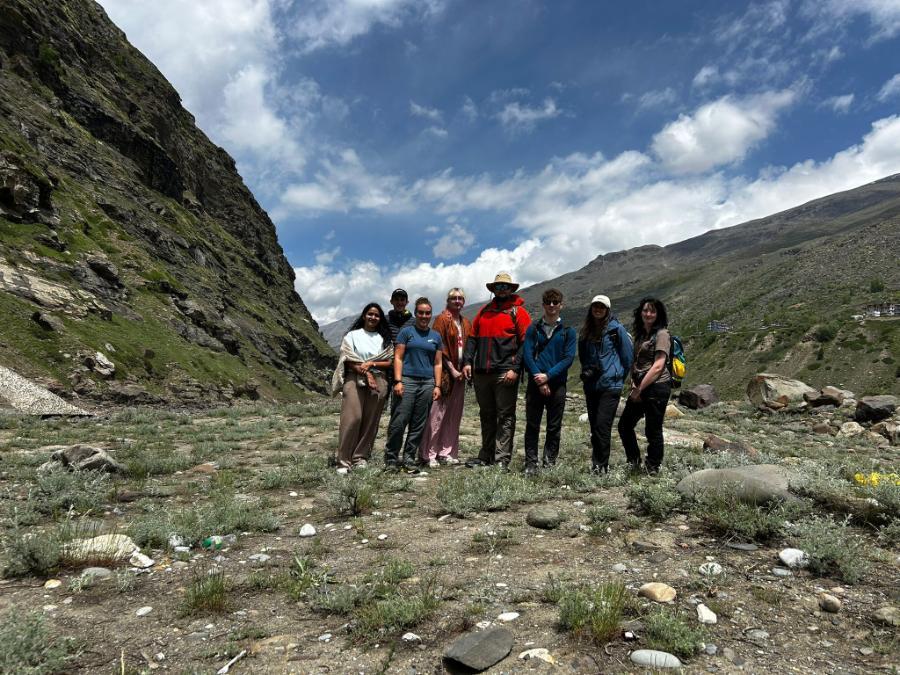
Students who study our Working with Children and Families (WCF) course usually tell us that they’ve chosen to study this course because they ‘want to make a difference’, that they want a career where they help people directly, working to make society a fairer place. Sometimes they tell us that they want to change the world. This is music to our ears, staff on the programme also have this aim. Community action is a key part of our previous professional experience, current work, and research specialisms. A key foundation of the course is the link between theory and practice, we are always looking for ways to work directly with community partners. Our students are deeply committed to their own communities, whether in Cumbria or further afield. We value the real-life experience they bring, including from their current part-time work and caring responsibilities. Many of our students have worked on the frontline during the pandemic, alongside their studies: in schools, hospitals, as carers, in supermarkets, in nurseries, and in children’s services, and we are so proud of them for this.
How do our students learn to and enact helping local communities?
Third-year students the module ‘Enabling Practice and Empowerment in Communities’, where we welcome a range of external speakers from children’s charities, food charities, councils, and outdoor activities groups. A panel of community professionals was blown away by the students’ assessment task of a ‘Dragon’s Den’ style presentation for community projects they had designed, ranging from community gardens to clothes swap events. My own and my colleague Tracy Hayes’ Ph.D. studies, although different, both look at the importance of stories, value the importance of place, and the attention we give to the world around us. On WCF, when we think about community, we also think about the actual places in which we live and the way we relate to them. This links to the University’s core values in its Strategic Plan of enriching people through place. Third-year students also enjoy an Outdoor Environments and Experiential Learning module and their assessment task is to design a local walk, carry out a risk assessment, and think about stories that can connect us to the environment. We value all our special landscapes in Cumbria – the rural areas, the West coast, and urban areas also, and we know that being outside in all types of environments can support our wellbeing.
Community of course also means our own community, and it is in looking to consider how we build that which is fundamental to our efforts, to serve the community outside the university. This begins before students start Year 1 when first-year cohort lead Tina Harvey starts the process of getting to know students as individuals, understanding their specific contexts, and building group identity. Tina continues this work in Welcome Week and throughout year one, ready to pass on the year group to the next cohort lead.

What actions have our staff members taken to support local communities?
When we think about community action, we root this in a theoretical understanding. My own thinking about this has developed through my own voluntary work for Carlisle Community Help, a group I helped set up at the start of the pandemic to offer emergency support to those needing food and prescriptions. Our work grew to provide school meals over the holidays, and now we run an Affordable Food Hub with partners across the city and district, we have helped thousands of individuals and families to date and, having secured a sizeable amount of funding, we now have a sustainable model in place. Central to our work is the model of ‘Thriving Communities’ from the work of Hilary Cottam, which promotes the idea of working alongside people who need support, understanding their needs rather than operating a ‘top down’ model, and working together to build independence and resilience. This has been a powerful experience and has deepened my understanding of the inequalities in society, and how the current crisis has magnified these. This has impacted directly on my teaching and research, enabling me to make my own links between theory and practice in ways that have really challenged my thinking.
How have Covid-19 and recent events affected the way students view and tackle societal issues?
Many of our students also feel strongly about how society is being shaped by Covid-19 and lockdown, and several have chosen to explore related issues in their current dissertations and other assessments. First-year students produced powerful responses to the question, ‘Are we all in this together?’ in relation to Covid-19 and also recent events such as the Grenfell tragedy and the Black Lives Matter movement.
Second-year students have been supported in doing fund-raising activities for a charity of their choice and reflecting on how this experience helps tackle inequality. Their assessment for this module also asks them to design a campaign to address a workplace equality issue and we are looking at a range of areas such as disability access, transgender rights, LGBTQ+ support, the gender pay gap.

How else has your team supported the community?
Other ways in which we have strengthened our community partnerships have included a conference. We ran this jointly with the Cumbria County Council Community Development Team in 2019, to be repeated when the restrictions are lifted. This brought together a range of external guests and speakers from the third sector, local government, and more, working alongside our students from WCF and Youth and Community Development. We are planning a similar conference in partnership with Carlisle Law Centre, of which I am a trustee, tentatively focused on ways in which new legislation impacts the lives of the more vulnerable in society. This was on hold during the pandemic, but can surely only be more valuable as we begin to look to the future.
Why is community so important?
Whether our focus is on ourselves or the world around us, the concept of community is at the heart of the way we view our course. If our students want to change the world, then that starts with the world around us and it is through the combined experiences of staff and students that we are learning what is needed. A former colleague used to say to me ‘There are thinkers and there are doers’. That prompted me to ‘do’ more in the community myself, but I didn’t ever want to leave the thinking behind. I’d like to think WCF is a course that promotes thinking as well as doing, and that we make a lasting difference in people’s lives as a result.
Are you interested in studying and working with children and families?
We offer a BA (Hons) Working with Children and Families with optional integrated foundation year or top-up options and an MA Working with Children, Adolescents and Families. Here at the University of Cumbria, we will help you develop the knowledge and skills you need for a successful career in Health and Social Care. It's time for you to make a difference, visit our course page today for more information on the course, call 01228 588 588 or email enquirycentre@cumbria.ac.uk to speak to an expert and plan your career.
Want to find out more?
You are ready to take that next step. Ready to make that life-changing decision and work towards your career goals. By downloading our prospectus you will have the world at your fingertips.
You can browse our 100+ unique course options and have access to finance and support information to get you started. Discover all of the courses available to you from Arts to Zoology – we’re excited to see what you choose.

.jpg)


.jpg)